Related Research Articles

The Sydney Conservatorium of Music is a heritage-listed music school in Macquarie Street, Sydney, New South Wales, Australia. It is one of the oldest and most prestigious music schools in Australia. Located adjacent to the Royal Botanic Gardens on the eastern fringe of the Sydney central business district, the conservatorium is a faculty of the University of Sydney, and incorporates the community-based Conservatorium Open Academy and the Conservatorium High School. In addition to its secondary, undergraduate, post-graduate and community education teaching and learning functions, the conservatorium undertakes research in various fields of music. The building was added to the New South Wales State Heritage Register on 14 January 2011.

The Sydney Symphony Orchestra (SSO) is an Australian symphony orchestra that was initially formed in 1908. Since its opening in 1973, the Sydney Opera House has been its home concert hall. Simone Young is the orchestra's chief conductor and first woman in the role.

Sir Eugene Aynsley Goossens was an English conductor and composer.
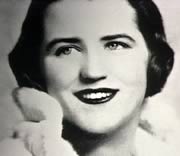
Dame Joan Hilda Hood Hammond, was an Australian operatic soprano, singing coach and champion golfer.

Marianne Mathy was a coloratura soprano opera singer and distinguished teacher of opera and classical singing.
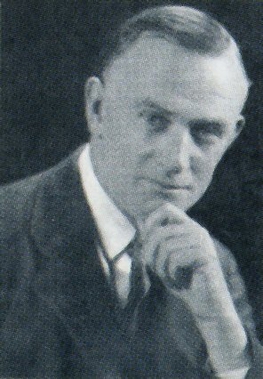
Harold John Williams MBE was an Australian baritone and music teacher. Born in Sydney, he had a career in England and his native country, performing in opera, oratorio and concerts and giving radio broadcasts.

Nancy Mary Weir was an Australian pianist and teacher.
Phyllis Rosina Raisbeck MBE was an Australian opera and concert soprano and mezzo-soprano singer. Her fine voice was basically a dramatic mezzo, with a warm middle register supporting strong top notes.
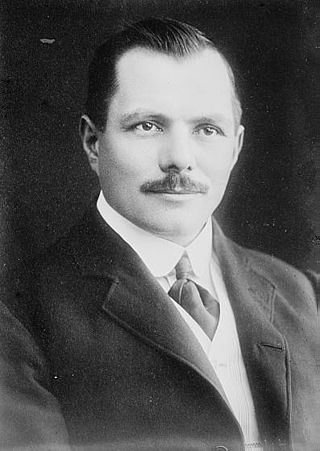
Hugh Donald "Huge Deal" McIntosh was an Australian theatrical entrepreneur, sporting promoter and newspaper proprietor
Milton Sydney Love, invariably referred to as M. S. Love, was an Australian Stipendiary Magistrate in New South Wales and the founding Warden of the Southern Mining District of NSW.
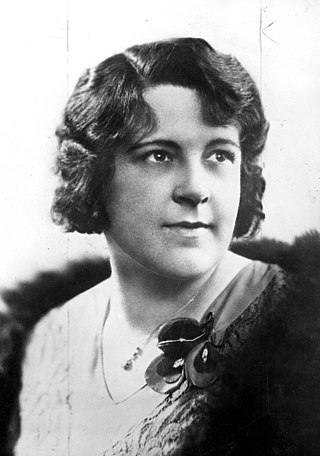
Essie Ackland was an Australian contralto who performed ballads, songs and in oratorio and concerts. At one time her recordings were more in demand than those of any other female singer in the world. She also recorded Gilbert and Sullivan with Sir Malcolm Sargent, but never sang in standard operas.
Molly Raynor was a New Zealand and Australian actress.

Alice Ellen Lauentine Charbonnet was an Australian composer of romantic and classical music. Her father was a French judge, and her formative years were spent in a variety of countries. She married violinist Frederick William Kellermann; their daughter Annette Kellermann was a long-distance swimmer, vaudeville entertainer, film actress, and educator.
WillyRedstone was a French composer and conductor of light music who had a substantial career in England and Australia, where he became music editor for the ABC.

Fred Werner born Gottfried W Werner was an Australian composer, music teacher. He was possibly born near Berlin where he attended the prestigious Stern Conservatory and studied under Polish composer Theodor Kullak. He migrated to Coolabah near Dubbo in New South Wales, Australia around 1890. In 1902 he married Emma Durrell and had a son Charles. In 1910 he was appointed to the Staff of Sydney Conservatorium of Music where he taught keyboard and held several recitals. In 1915 he left teaching, possibly due to wartime Australian racism, and in 1916 he became licensee at the Coolabah Hotel His best known student was Kate Rooney who succeeded in tours of London and USA

Austral Groves "Strella" Wilson was an Australian soprano, World War II troop entertainer, and radio personality. She was not only a favorite in Australia, but also performed in North America, England, Hong Kong and Japan. She was appointed Order of the British Empire in 1950.
Frank Greene born Frank William Green in Portsmouth, England, was an English baritone singer and comedian in Australia from 1909 to 1920, when he left for America.
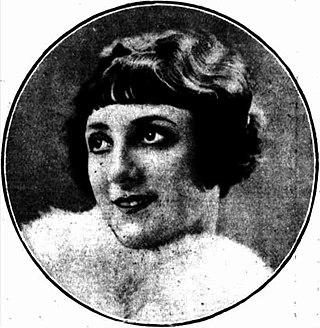
Patti Russell was an Australian soprano singer, playing in grand opera and Gilbert and Sullivan for nine years (1919–1928) to universal acclaim. Little is known of her early life, or any subsequent activities.
Dame Nellie Melba Scholarship may refer to any of several prizes awarded by the great soprano or in her name.
Marie Alice Bremner was an Australian soprano, remembered for performances in Gilbert and Sullivan operas. She became a favorite performer in musical comedy, first on stage, then revivals and variety shows on broadcast radio. She was popular with producers for her ability to take on key roles at a moment's notice and draw "rave" reviews. Her accompanist husband Ewart Chapple became a senior executive with the Australian Broadcasting Commission.
References
- 1 2 "Music and Drama". The Sydney Morning Herald . 10 June 1916. p. 8. Retrieved 7 June 2022– via Trove.
- 1 2 3 "Goossens, Alice Leontine Melanie". National Archives of Australia . Retrieved 7 June 2022.
- ↑ "Advertising". The Express and Telegraph . 24 June 1915. p. 2. Retrieved 7 June 2022– via Trove.
- ↑ "Anzac Day". The Sun (Sydney) . 23 April 1916. p. 3. Retrieved 7 June 2022– via Trove.
- ↑ "Melbourne Letter". The Critic (Adelaide). 9 February 1921. p. 12. Retrieved 7 June 2022– via Trove.
- ↑ "Leeton Music Club". The Murrumbidgee Irrigator . Vol. XXXII, no. 49. New South Wales, Australia. 27 June 1947. p. 2. Retrieved 6 June 2022– via National Library of Australia.
- 1 2 Beth Mary Williams. Lineages of Vocal Pedagogy. Vol. 2. Retrieved 6 June 2022.
- ↑ "Farewell Concert". The Sun (Sydney) . 22 November 1927. p. 18. Retrieved 7 June 2022– via Trove.
- ↑ "Paris Skirts". The Sun (Sydney). 30 July 1928. p. 9. Retrieved 7 June 2022– via Trove.
- ↑ "Music". The Cumberland Argus. 13 February 1952. p. 6. Retrieved 7 June 2022– via Trove.
- ↑ "Family Notices". The Sydney Morning Herald . 2 February 1942. p. 10. Retrieved 7 June 2022– via Trove.